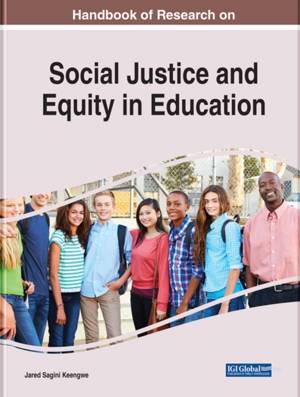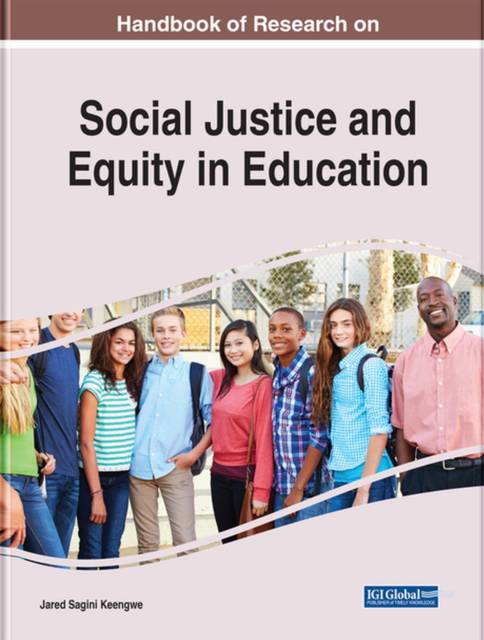
- Afhalen na 1 uur in een winkel met voorraad
- Gratis thuislevering in België vanaf € 30
- Ruim aanbod met 7 miljoen producten
- Afhalen na 1 uur in een winkel met voorraad
- Gratis thuislevering in België vanaf € 30
- Ruim aanbod met 7 miljoen producten
Zoeken
Handbook of Research on Social Justice and Equity in Education
€ 446,45
+ 892 punten
Omschrijving
There is growing pressure on teachers and other educators to understand and adopt the best ways to work with the various races, cultures, and languages that diverse learners represent in the ever-increasing culturally-diverse learning environments. Establishing sound cross-cultural pedagogy is also critical given that racial, cultural, and linguistic integration has the potential to increase academic success for all learners. To that end, there is also a need for educators to prepare graduates who will better meet the needs of culturally diverse learners as well as support their students to become successful global citizens. The Handbook of Research on Social Justice and Equity in Education highlights cross-cultural perspectives, challenges, and opportunities pertaining to promoting cultural competence, equity, and social justice in education. It also explores multiple concepts of building a bridge from a monocultural pedagogical framework to cross-cultural knowledge. Covering topics such as diversity education and global citizenship, this major reference work is ideal for academicians, researchers, practitioners, policymakers, instructors, and students.
Specificaties
Betrokkenen
- Uitgeverij:
Inhoud
- Aantal bladzijden:
- 444
- Taal:
- Engels
- Reeks:
Eigenschappen
- Productcode (EAN):
- 9781799895671
- Verschijningsdatum:
- 06/05/2022
- Uitvoering:
- Hardcover
- Formaat:
- Genaaid
- Afmetingen:
- 216 mm x 279 mm
- Gewicht:
- 1310 g

Alleen bij Standaard Boekhandel
+ 892 punten op je klantenkaart van Standaard Boekhandel
Beoordelingen
We publiceren alleen reviews die voldoen aan de voorwaarden voor reviews. Bekijk onze voorwaarden voor reviews.






